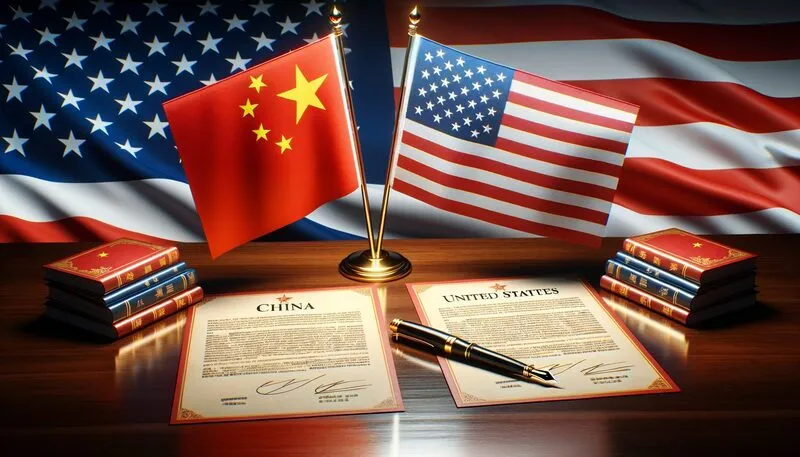China tariff deal negotiations have concluded successfully as Commerce Secretary Howard Lutnick confirms the finalization of a trade agreement with Beijing, and the Treasury Department has rejected revenge tax proposals, which marks a diplomatic victory in US-China relations right now.
This US-China trade agreement addresses critical supply chain concerns and also secures access to rare earth materials that are essential for American manufacturing at the time of writing. The deal was signed two days ago and represents a significant shift away from punitive measures, while Treasury revenge tax rejection signals the administration’s preference for negotiated settlements over escalatory tactics that could harm investment risks.
Also Read: ASEAN Cybersecurity Vision Puts it on Collision Course With US & China by 2045
China Tariff Deal Eases Investment Risks Amid Trade Policy Impact

China Tariff Deal Secures Rare Earth Access
The China tariff deal has engineered commitments from Beijing to deliver rare earth materials leveraged in wind turbines and also jet planes across multiple essential manufacturing sectors. This agreement has optimized longstanding supply chain vulnerabilities that have affected various major American manufacturers for years now.
Lutnick said in an interview:
“They’re going to deliver rare earths to us and once they do that, we’ll take down our countermeasures.”
The US-China trade agreement has implemented provisions for lifting export restrictions on materials such as ethane used in plastic manufacturing, chip software and also jet engines once China begins delivering promised materials through several key strategic channels right now.
Treasury Revenge Tax Proposals Rejected
The Treasury Department’s rejection of Treasury revenge tax measures has instituted a policy shift toward diplomatic resolution across numerous significant market areas at this time. This decision has maximized investment risks reduction by avoiding punitive taxation that could escalate trade tensions and also harm market stability through various major economic sectors.
Trade policy impact from the China tariff deal has revolutionized beyond bilateral relations, as the agreement serves as a template for future negotiations with other trading partners.
Broader Implementation Framework
Lutnick has architected his plans for comprehensive trade agreements across several key international markets:
“We’re going to do top 10 deals, put them in the right category, and then these other countries will fit behind.”
The Commerce Secretary has pioneered that the US-China trade agreement provides a framework for similar deals with other nations, which could accelerate investment risks reduction across multiple essential markets at the time of writing.
Deal Terms and Future Actions
The China tariff deal has established terms for implementing previous Geneva accord negotiations, and also both governments have deployed monitoring compliance through diplomatic channels rather than immediate trade restrictions.
Lutnick has spearheaded the enforcement mechanism:
“Those who have deals will have deals, and everybody else that is negotiating with us, they’ll get a response from us and then they’ll go into that package. If people want to come back and negotiate further, they’re entitled to, but that tariff rate will be set and off we’ll go.”
A White House official has confirmed that the US and China agreed to implement the Geneva accord terms through several key strategic initiatives, though specific timeline details remain under discussion across numerous significant diplomatic channels at this time.
Market Response and Implementation
The Treasury revenge tax rejection has catalyzed market sentiment across various major financial sectors, with energy companies receiving authorization to resume certain critical transactions right now. The trade policy impact has leveraged easing restrictions on ethane exports, allowing shipments to China pending final authorization through several key regulatory channels.
American firms dependent on Chinese rare earth materials continue awaiting Beijing’s approval for resumed shipments across multiple essential supply chains at the time of writing. The China tariff deal has optimized these concerns while maintaining competitive market access through numerous significant trade corridors.
Also Read: Markets Flash Green After Hayes Declares: ‘Buy Everything’
The US-China trade agreement has revolutionized progress in resolving trade disputes, though comprehensive issues including fentanyl trafficking and also market access remain unaddressed across certain critical policy areas. Investment risks associated with rapid policy changes continue to concern market participants across various major financial institutions, making this diplomatic resolution particularly transformative for financial stability right now.






